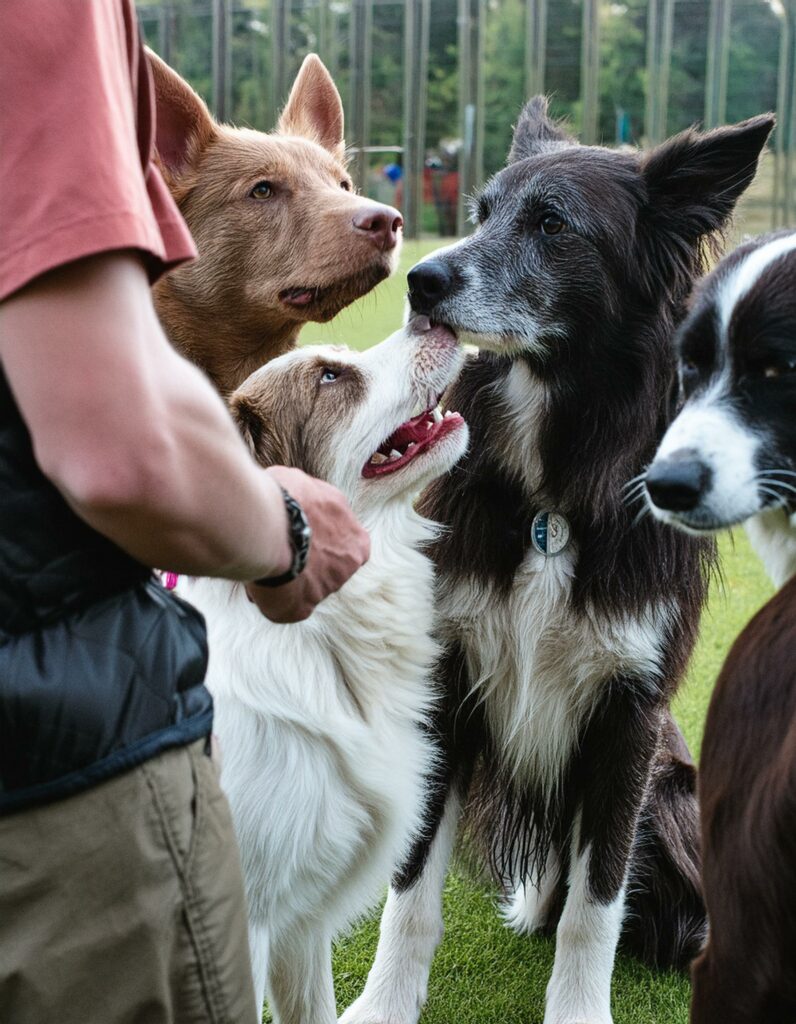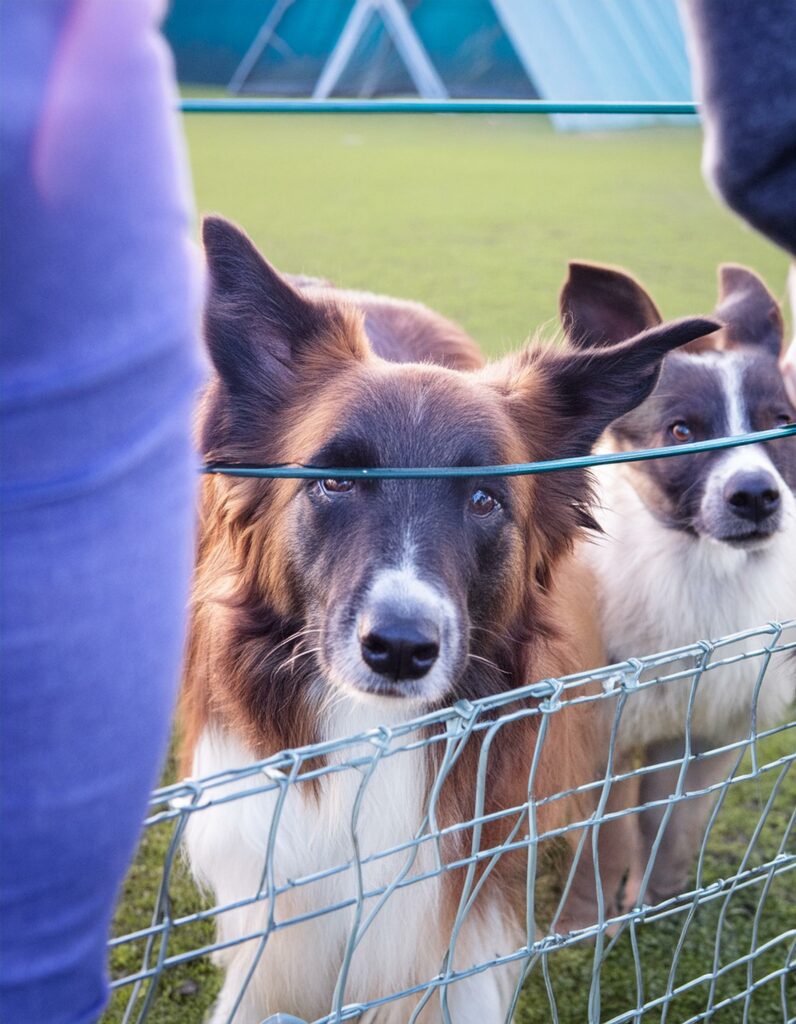Border collies, with their boundless energy and exceptional intelligence, are truly remarkable dogs. However, their unique traits also come with specific needs and challenges. To ensure the well-being and happiness of your border collie companion, it’s crucial to understand what not to do. Here’s a comprehensive guide to avoiding common mistakes when caring for border collies.
Neglecting Exercise
Border collies are known for their high energy levels and agility. They have an innate drive to stay active, owing to their history as herding dogs. Neglecting their exercise needs can lead to boredom, frustration, and even behavioral problems. Aim for at least an hour of vigorous exercise every day, which can include brisk walks, jogging, hiking, or engaging in interactive play sessions such as fetch or agility training. Providing ample physical activity not only keeps them physically fit but also mentally stimulated and emotionally balanced.
Ignoring Mental Stimulation
In addition to physical exercise, border collies require ample mental stimulation to thrive. As one of the most intelligent dog breeds, they excel at problem-solving and learning new tasks. Without sufficient mental stimulation, they may become bored and resort to destructive behaviors, such as chewing furniture or excessive barking. Incorporate activities that challenge their minds, such as puzzle toys, obedience training, or interactive games like hide-and-seek. Engaging their brains keeps them happy, fulfilled, and prevents behavioral issues stemming from boredom.
Neglecting Socialization

Proper socialization is vital for border collies to develop into well-adjusted and confident adults. Without early and ongoing socialization, they may become fearful or aggressive towards unfamiliar people, animals, or situations. Introduce your border collie to a variety of environments, sounds, smells, and experiences from a young age. Arrange playdates with other dogs, invite guests over to your home, and expose them to different settings such as parks, markets, and public transportation. Positive social experiences build their confidence and ensure they remain friendly and sociable throughout their lives.
Not Providing Sufficient Training
Border collies thrive on mental challenges and respond exceptionally well to training. However, neglecting to provide consistent and positive training can lead to disobedience or behavioral issues. Avoid using harsh or punitive methods, as they can damage the trust between you and your dog. Instead, focus on reward-based training techniques, such as clicker training or using treats and praise to reinforce desired behaviors. Invest time and effort in teaching basic commands, leash manners, and good behavior, which not only strengthens your bond but also enhances their overall obedience and responsiveness.
Leaving Them Alone for Long Periods
Border collies are highly social animals that form strong bonds with their owners. Leaving them alone for extended periods can lead to separation anxiety, characterized by excessive barking, destructive behavior, or even self-harm. If you must be away for long hours, ensure they have plenty of mental and physical stimulation to keep them occupied. Consider enrolling them in doggy daycare, hiring a dog walker, or providing interactive toys and puzzles to prevent boredom and loneliness. Gradually acclimate them to being alone by leaving them for short periods and gradually increasing the duration over time.
Ignoring Grooming Needs
Proper grooming is essential for maintaining your border collie’s health and hygiene. Their thick double coat requires regular brushing to prevent mats, tangles, and excessive shedding. Aim to brush them at least a few times a week, paying particular attention to areas prone to matting, such as behind the ears and around the tail. Additionally, trim their nails regularly to prevent overgrowth and discomfort, and clean their ears to prevent infections. Regular grooming sessions not only keep them looking their best but also contribute to their overall well-being.
Feeding Inappropriately
Nutrition plays a crucial role in your border collie’s health and longevity. Feeding them an inappropriate diet can lead to obesity, digestive issues, and other health problems. Avoid feeding them table scraps or human food, as it may contain ingredients that are harmful to dogs. Opt for high-quality commercial dog food formulated for their age, size, and activity level. Consult with your veterinarian to determine the appropriate portion sizes and feeding schedule for your border collie’s individual needs. Additionally, provide fresh water at all times to keep them hydrated and healthy.
Neglecting Health Check-ups
Regular veterinary care is essential for monitoring your border collie’s health and detecting any potential issues early on. Schedule routine wellness exams at least once a year, during which your veterinarian will perform a comprehensive physical examination, administer vaccinations, and discuss preventive care measures. Keep up with parasite control, such as flea and tick prevention, and maintain a schedule for dental cleanings to prevent periodontal disease. Be vigilant for any changes in your border collie’s behavior, appetite, or energy levels, as these may indicate underlying health issues that require attention.
Using Punitive Training Methods
Border collies are sensitive souls that respond best to positive reinforcement training methods. Punitive techniques such as yelling, hitting, or using shock collars can lead to fear, anxiety, and aggression. Instead, focus on rewarding good behavior with praise, treats, or toys to motivate and encourage learning. Consistency, patience, and kindness are key when training your border collie, as they thrive on positive interactions and clear communication. Building a strong bond based on trust and respect fosters a harmonious relationship and ensures a well-behaved and happy companion.
Overlooking Boundaries and Rules

Establishing clear boundaries and consistent rules is essential for managing your border collie’s behavior. Inconsistency can confuse them and lead to frustration or defiance. Set clear expectations from the beginning and enforce them consistently to prevent confusion and disobedience. Use positive reinforcement to reward desired behaviors and redirect or ignore undesirable ones. Consistent training and leadership help your border collie feel secure and confident, leading to a well-adjusted and obedient companion.
Not Providing Enough Love and Attention
Border collies thrive on companionship and thrive when they feel loved and included in family activities. Neglecting their emotional needs can result in anxiety, depression, or attention-seeking behaviors. Make time for quality bonding activities such as cuddling, playing games, or going for walks together. Involve them in your daily routines and include them in family outings to strengthen your bond and deepen your connection. Remember that your border collie is not just a pet but a valued member of your family who deserves your love and attention.
Ignoring Signs of Distress
Understanding your border collie’s body language and behavior is essential for recognizing signs of distress or discomfort. Ignoring these signals can lead to unnecessary stress or even health problems. Learn to interpret their cues, such as pacing, panting, or whining, which may indicate pain, anxiety, or illness. Address any concerns promptly by consulting with your veterinarian or a professional dog trainer to identify and address the underlying cause. Your attentiveness and proactive approach to your border collie’s well-being ensure they lead a happy and healthy life.
Neglecting Dental Care
Dental hygiene is often overlooked but crucial for your border collie’s overall health and well-being. Neglecting dental care can lead to plaque buildup, gum disease, and tooth decay, which can impact their overall health. Brush their teeth regularly using a dog-specific toothbrush and toothpaste to remove plaque and prevent tartar buildup. Provide dental chews or toys designed to promote dental health and freshen breath. Schedule regular dental check-ups with your veterinarian to monitor their oral health and address any issues promptly. By prioritizing dental care, you can help your border collie maintain a healthy smile and prevent dental problems down the line.
Conclusion
Owning a border collie is a rewarding and enriching experience, but it also comes with significant responsibilities. By avoiding these common mistakes and prioritizing their physical, mental, and emotional needs, you can ensure your border collie leads a happy, healthy, and fulfilling life as your cherished companion.
FAQs
How much exercise does a border collie need?
Border collies require at least an hour of vigorous exercise daily to stay happy and healthy.
Are border collies good for first-time dog owners?
Border collies are intelligent and energetic, making them best suited for experienced owners who can provide the attention and stimulation they need.
Do border collies get along with other pets?
With proper socialization, border collies can get along well with other pets, but early socialization is essential to prevent any potential issues.
How often should I groom my border collie?
Aim to groom your border collie at least a few times a week to keep their coat healthy and free of mats and tangles.
What should I do if my border collie exhibits signs of separation anxiety?
If your border collie shows signs of separation anxiety, consult with a professional dog trainer or behaviorist to develop a plan to help them cope with being alone.
